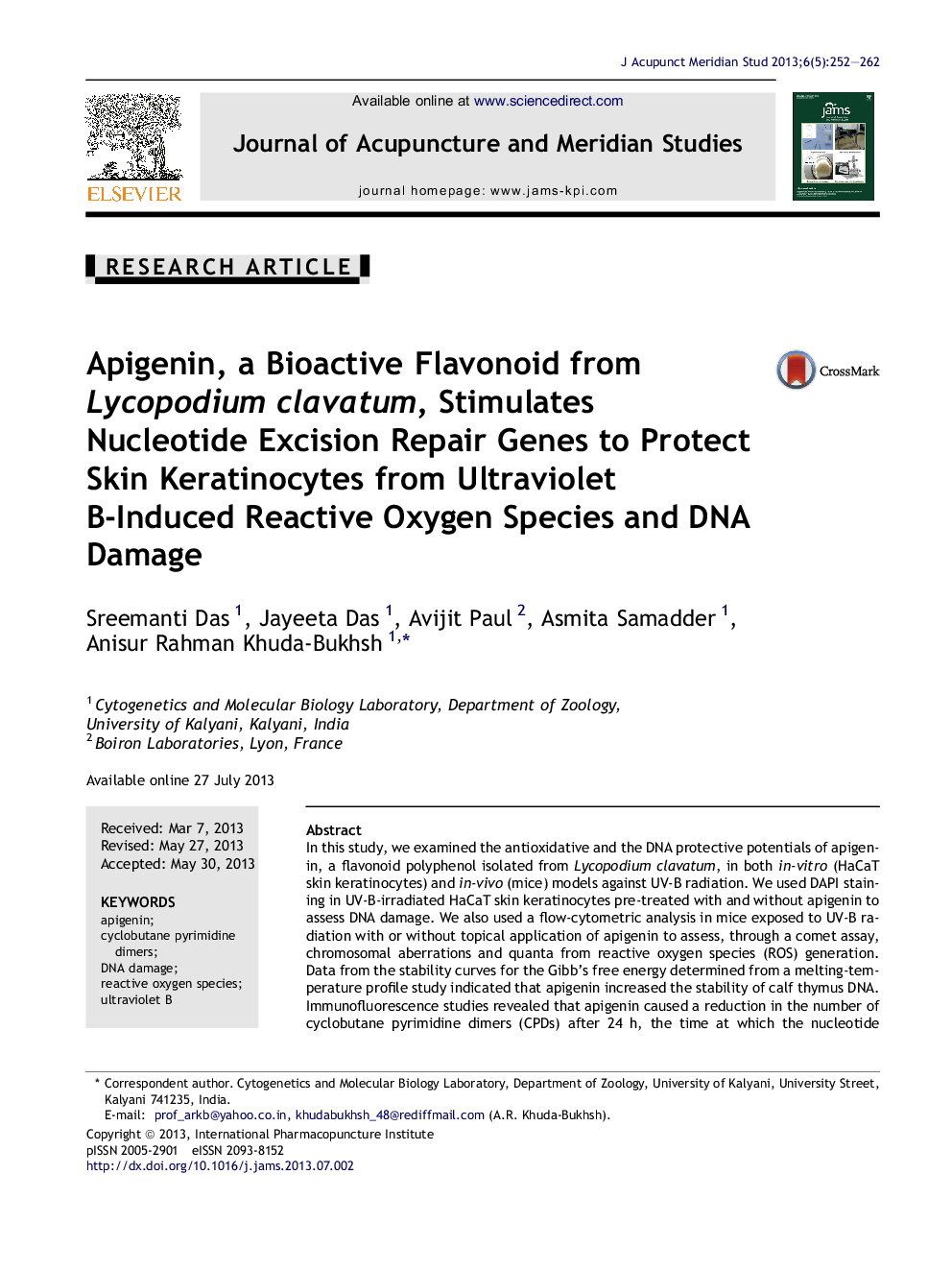| Article ID | Journal | Published Year | Pages | File Type |
|---|---|---|---|---|
| 3098826 | Journal of Acupuncture and Meridian Studies | 2013 | 11 Pages |
In this study, we examined the antioxidative and the DNA protective potentials of apigenin, a flavonoid polyphenol isolated from Lycopodium clavatum, in both in-vitro (HaCaT skin keratinocytes) and in-vivo (mice) models against UV-B radiation. We used DAPI staining in UV-B-irradiated HaCaT skin keratinocytes pre-treated with and without apigenin to assess DNA damage. We also used a flow-cytometric analysis in mice exposed to UV-B radiation with or without topical application of apigenin to assess, through a comet assay, chromosomal aberrations and quanta from reactive oxygen species (ROS) generation. Data from the stability curves for the Gibb's free energy determined from a melting-temperature profile study indicated that apigenin increased the stability of calf thymus DNA. Immunofluorescence studies revealed that apigenin caused a reduction in the number of cyclobutane pyrimidine dimers (CPDs) after 24 h, the time at which the nucleotide excision repair (NER) genes were activated. Thus, apigenin accelerated reversal of UV-B-induced CPDs through up-regulation of NER genes, removal of cyclobutane rings, inhibition of ROS generation, and down-regulation of NF-κB and MAPK, thereby revealing the precise mechanism of DNA repair.
